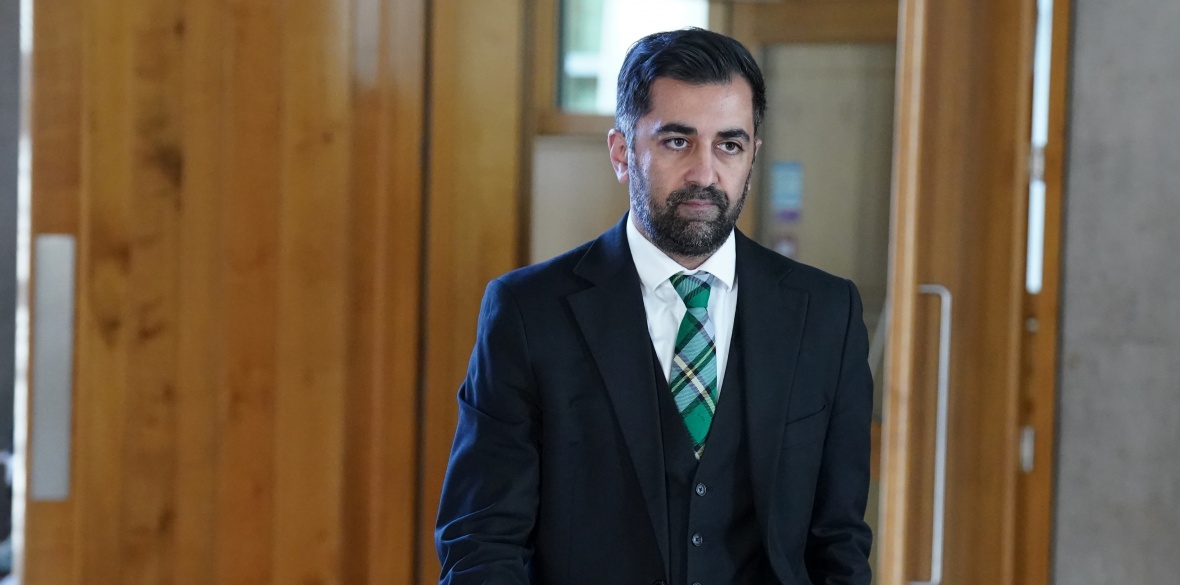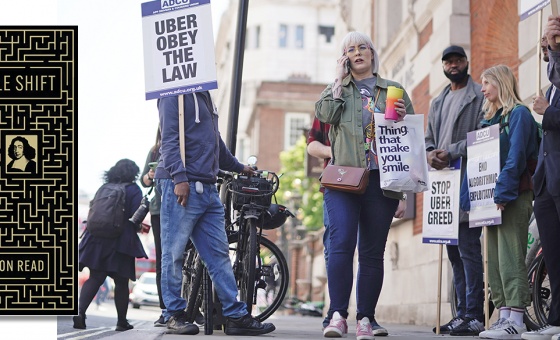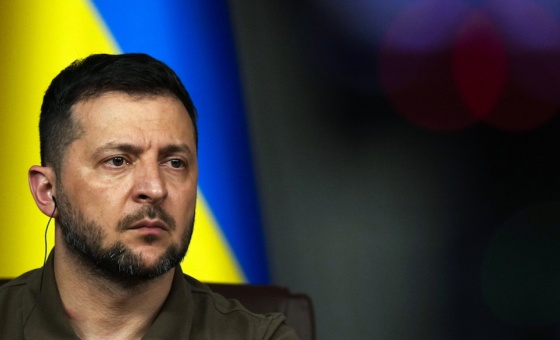This is the last article you can read this month
You can read more article this month
You can read more articles this month
Sorry your limit is up for this month
Reset on:
Please help support the Morning Star by subscribing here
THE Scottish government’s Budget for 2024-5 is to be unveiled in two weeks, on December 19 2023. As a Christmas presents go, it couldn’t be coming at a more difficult time for the SNP and its leader Humza Yousaf.
Six in 10 people think that the Health Minister, Michael Matheson, should resign. Not for the horrendous waiting times for treatment, not even the hugely excessive hours worked by many nurses, nor for the long waits for ambulances, but for his cover-up of how he ran up £11,000 roaming charges on his Scottish Parliament iPad while on holiday.
Add to that, Yousaf’s predecessors as first minister won’t disappear quietly. Alex Salmond has launched a new legal case against the Scottish government, naming Nicola Sturgeon. Meanwhile the police investigation involving Sturgeon and her husband Peter Murrell continues.
If that wasn’t enough, his Green coalition partners led him into disaster after disaster with their mishandling of important legislation and he has been forced to abandon the SNP’s flagship policy on a national care service.
His only consolation is that polling is totally confused. The latest Ipsos poll gives support for independence an 8 per cent lead and predicts the SNP will win a big majority of Westminster seats. Meanwhile, a poll a few days earlier gave Labour the majority of seats.
On the economic front, the Scottish government has itself projected a £1 billion “resource spending gap,” otherwise known as a black hole, which is predicted to rise to £1.9bn by 2027-28. On top of that the independent forecaster, the Scottish Fiscal Commission, expects Scotland to experience a record fall in living standards.
Yousaf pre-empted the Budget by unilaterally announcing a council tax freeze to the SNP October conference, somewhat to the surprise of the local councillors present. He took this regressive step without consultation, once again undermining the role of local government and trampling over devolution.
It goes against some of the firm commitments he gave to local government in March this year where he pledged that the New Deal will be jointly agreed with the Confederation of Scottish Local Authorities (Cosla). It agreed “meaningful engagement” to explore a new fiscal framework for councils.
When taking office in March 2023 Yousaf issued a mandate letter to each of his ministers. Shona Robison as Deputy First Minister and Finance Minister was given some of the toughest challenges — one being to “work closely with the Cosla leadership team as we reset our relationship with local government and strive to work even more collaboratively in partnership with them to tackle our shared challenges.” Well that hasn’t gone so well.
Her task was ditched by her boss for short-term political gain. Robison’s challenges didn’t end there. She was tasked with completing the first review of Scotland's Fiscal Framework. This was completed, but without consultation and almost under the radar.
The new settlement continues to rely largely on the Barnett formula, but it now specifies how the block grant is to be cut for each new tax for which the Scottish government takes responsibility. The rationale for these adjustments is that the UK government loses its tax base in Scotland for each transferred tax but also loses its obligation to pay for each transferred social security power.
Borrowing powers for capital and resource remain extremely limited, but the ability to borrow to cover unexpected fluctuations in tax income has at long last been introduced.
So now the Deputy First Minister has responsibility for her first Budget. What can we expect? If we were to believe Yousaf’s policy prospectus, its first priority should be tackling poverty and protecting people from harm.
The Scottish government continually repeats its commitment to fighting poverty, without a strategy, without resources, without proper ways of measuring success or failure and with no underpinning ideological commitment to the redistribution of wealth.
Year after year, new pledges are made, and old ones repeated, but things get worse. I don’t doubt that members of the government genuinely want the eradication of poverty, but either they don’t understand or don’t believe in taking the steps needed to start that process.
Giving Robison, in her role as deputy leader, the responsibility for delivering his commitment on tackling poverty and managing the economy makes her both supplicant and alms giver. She has stated that the Scottish government is “looking in great detail at what the options are in relation to targeting” and suggested that “value for money, purpose and impact all need to be looked at, but our focus is definitely on better targeting.” She accepts that means testing “is more complex” but all targeting will of necessity exclude those who narrowly miss being targeted.
Yousaf’s mandate letter went on to tell Robison to ensure Scotland’s tax system was “the most progressive in the UK.” But subsequently backroom briefings have suggested that “it’s not going to happen.”
The Scottish government has created an external tax advisory group “to consider how best to engage with the public and other stakeholders on the future direction of tax policy, including whether a national conversation on tax is required.”
It will be interesting to see if the group, established in June 2023, has had an input into the Budget, but the majority of members share the Scottish government’s conservative approach to taxation. Dave Moxham, deputy general secretary of the STUC, is a member, but may be a lone voice in posing a different approach to taxation as promoted by the STUC and some third sector organisations.
STUC has this week launched its updated study on how taxation could be increased in order to better fund public services. The report argues for Council Tax to be replaced by a Proportional Property Tax which will raise more than the current banding system while having minimal impact on low-income households. It argues that “the Scottish government has the power to introduce a tax on wealth, provided this is implemented as part of the local tax system rather than a national tax.”
It proposes a wealth tax on all of net property wealth, net financial wealth, physical wealth and pension wealth, with a starting point of taxing £1 million net wealth at 0.5 per cent and increasing in stages to 2 per cent on assets worth more than £5m.
Poverty Alliance, an anti-poverty network, had previously welcomed Yousaf’s leadership campaign commitment to wealth taxes and a new income tax band. But as we know leadership campaign commitments are easily discarded. The alliance is now concerned that “the First Minister is seemingly rolling back on the positive rhetoric surrounding the use of Scotland’s taxation powers.”
The alliance calls for the introduction of a new income tax band between the current higher and top rate which could raise between £110m and £260m.
It is demanding action on the long-promised replacement of council tax before the end of this parliament in 2026. Importantly it wants the First Minister to hold good to his promise and explore better ways of taxing wealth.
Conclusion?
Announcing a council tax freeze days after losing the Rutherglen & Hamilton West by-election demonstrated that the First Minister’s commitments to progressive taxation are contingent on what he thinks will help the SNP electorally.
His commitment to a wealth tax during his leadership election and his (and that of the other candidates) support for the STUC report has been short-lived.
We would love to see Scottish Labour’s alternative budget for 2024-25. How would it differ from the SNP’s Budget? Would it introduce a wealth tax or a land value tax, how would it reform council tax? If it were a campaigning party that is exactly what it would do.











